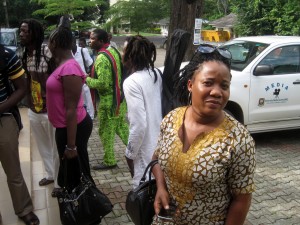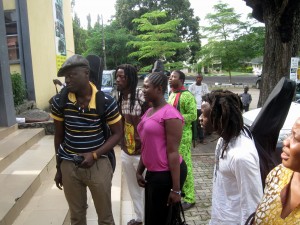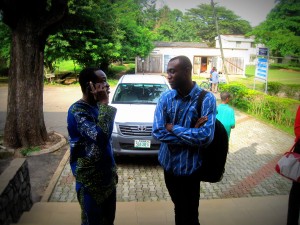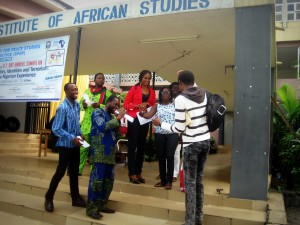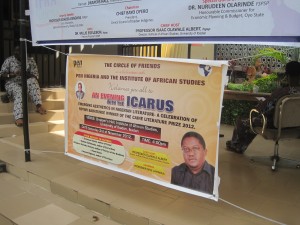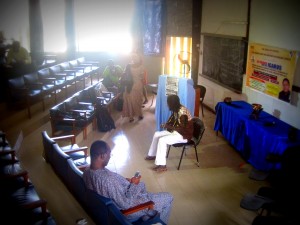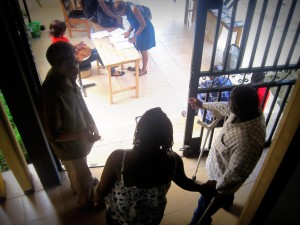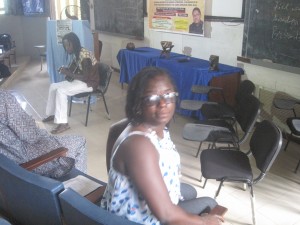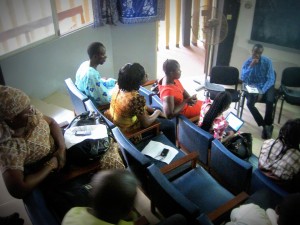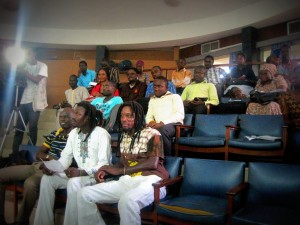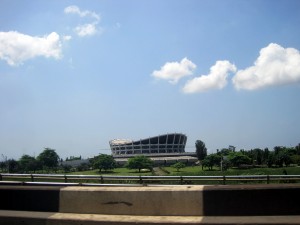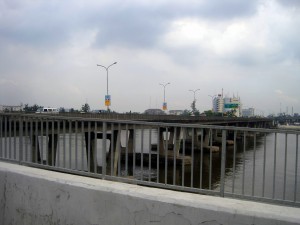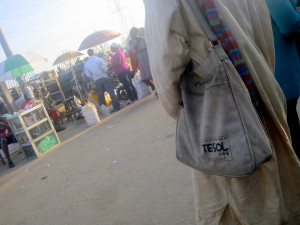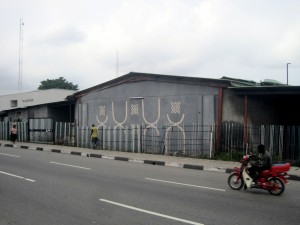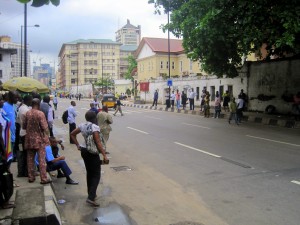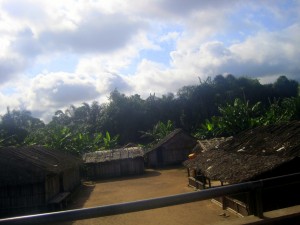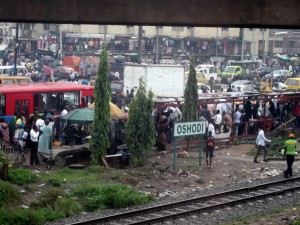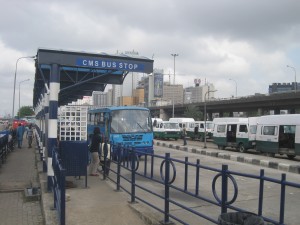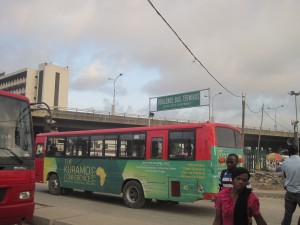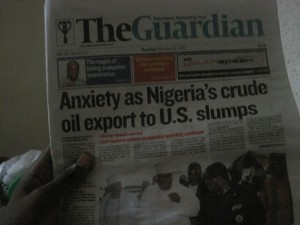Today I was at a book festival at the Freedom Park: The Lagos Book and Arts Festival. The morning was sunny and happy but the view from my bus, as it approached the Lagos Island from the Third Mainland Bridge, was curious: the sun was under the clouds, the Island was invisible behind a thick fog and the clouds intercepted ground at the edge of the Island.
At Marina Road I alighted and went to breakfast at a restaurant on Kakawa Street. As I came out the burly figure of Eghosa Imasuen coming up the opposite walkway was what I saw: his chest pushed out, his legs kicking the air and his arms swinging to his back. The thought that he was going to where I had just left came to me and I smiled as I turned into Broad Street and walked the long way down to Freedom Park.
I went into the Kongi’s Harvest Art Gallery to see an arts exhibition. Of all the works on display I am most captivated by a photograph by Uche James-Iroha. In the photo a middle-aged man behind a chalkboard knits his brows and fixes his eyes at the camera. The rest of the picture – the shanty the man is in and the carpentry measurements on the chalkboard – is difficult to piece together to form a complete image. The photo is a puzzle and as one tries to discern the anger on the man’s face, what he is doing in the shanty and what the measurements on the board are for, one is slowly absorbed into the photo.
When I came out of the gallery the events were ready to begin. There were schoolchildren from many schools, there was a book fair, there was an arts fair and there was an audience that rounded the stage. I walked into the fair and I met people I know. I bought Fagunwa’s Ogboju Ode ninu Igbo Irunmole and found myself a seat.
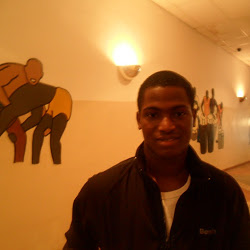 In a few minute the opening event began. Bishop Mathew Kukah spoke to the schoolchildren about books, played with them, danced with them and answered questions from them; a troupe of kids in adire came on stage and delighted the audience; the poet Oyinkansola, a girl of 10, came on stage and read her poem; Tolu Ogunlesi and Bishop Mathew Kukah discussed the bishop’s new book and its concerns with the theme of the festival The Narratives of Conflict.
In a few minute the opening event began. Bishop Mathew Kukah spoke to the schoolchildren about books, played with them, danced with them and answered questions from them; a troupe of kids in adire came on stage and delighted the audience; the poet Oyinkansola, a girl of 10, came on stage and read her poem; Tolu Ogunlesi and Bishop Mathew Kukah discussed the bishop’s new book and its concerns with the theme of the festival The Narratives of Conflict.
When it was afternoon I walked into the gallery and went up the first floor where a discussion about books was taking place. I left a few minutes later when sleep began to sneer at me. I came back down into a most enthralling discussion about a book My Life Has a Priceby Tina Okpara, a young lady who in the book tells her story of child abuse in France.
________________
Omotunde Kasali is a writer, photographer and biochemist. He lives in Lagos.
